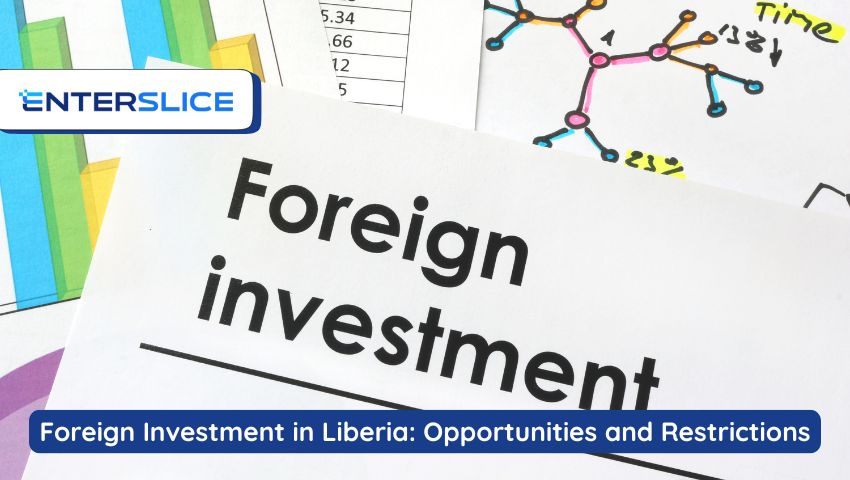Liberia, a West African nation with a wealth of natural resources and strategic access to global markets, is increasingly attracting foreign investors seeking growth opportunities in emerging economies. From mining and agriculture to telecommunications and infrastructure, the country presents numerous investment possibilities. However, foreign investors must also be aware of the legal frameworks, restrictions, and compliance requirements associated with company registration in Liberia and doing business there.
In this blog, we will explore the key opportunities available to foreign investors, examine the restrictions and legal considerations, and guide you through Liberia company formation and the essentials of starting a business in Liberia.
Why Consider Investing in Liberia?
Liberia’s economy is largely driven by its resource-rich sectors and a growing commitment to economic reform. Here are some of the compelling reasons why investors are turning to Liberia:
-
Natural Resource Abundance
Liberia is rich in natural resources such as iron ore, gold, diamonds, and timber, making it an attractive location for extractive industries. -
Agricultural Potential
With over 60% of its land classified as arable, Liberia holds vast opportunities for commercial agriculture and agro-processing ventures. -
Strategic Location
Situated on the West African coast, Liberia provides access to international shipping routes, making it ideal for trade and logistics businesses. -
Government Incentives
The Liberian government actively encourages foreign investment through incentives like tax holidays, duty-free imports on capital goods, and investment guarantees. -
Growing Infrastructure
Investment in energy, roads, and telecommunications is expanding, opening doors for foreign participation in infrastructure development.
Liberia Company Formation: Legal Structures for Foreign Investors
Foreign investors looking to enter the Liberian market can choose from several business structures:
-
Limited Liability Company (LLC)
The most common form of Liberia company formation, LLCs allow both local and foreign ownership and offer flexibility in business operations. -
Branch Office
A foreign company can register a branch office in Liberia. While it allows operations under the parent company’s name, it must comply with local regulations. -
Representative Office
Suitable for market research or liaison activities, this structure does not permit commercial transactions. -
Public Limited Company (PLC)
Appropriate for large-scale operations, PLCs can raise capital from the public but involve more regulatory oversight.
All companies, regardless of type, must register with the Liberian Business Registry (LBR).
Also Read: Benefits of Business Registration in Indonesia
Company Registration in Liberia: Step-by-Step Guide
Step 1: Name Reservation
Start by reserving a unique business name through the Liberia Business Registry.
Step 2: Submit Incorporation Documents
Documents typically include:
-
Articles of Incorporation
-
Information on directors and shareholders
-
Proof of registered address
-
ID documents and tax identification numbers
Step 3: Pay Registration Fees
The LBR requires a registration fee, which varies based on company type and capital structure.
Step 4: Obtain Business Licenses
Depending on the business activity, specific licenses from sectoral regulators (such as the Ministry of Commerce or Ministry of Agriculture) may be necessary.
Step 5: Register for Taxes
You’ll need to register with the Liberia Revenue Authority for corporate tax, GST, and withholding tax compliance.
Step 6: Open a Business Bank Account
A corporate bank account in Liberia is essential for financial transactions and investor remittances.
Opportunities for Foreign Investment
-
Mining and Natural Resources
With untapped reserves and government partnerships, the mining sector offers long-term potential for foreign companies with the right expertise. -
Agribusiness
Foreign investment is encouraged in large-scale agriculture, processing, and exports of commodities like palm oil, cocoa, and rubber. -
Energy and Infrastructure
Liberia’s infrastructure development plans call for investment in roads, ports, housing, and renewable energy projects. -
ICT and Telecom
There is rising demand for technology solutions, internet access, and mobile services, making ICT a promising sector for foreign firms. -
Tourism
Although still in early development stages, Liberia’s coastline and wildlife reserves offer opportunities in eco-tourism and hospitality.
Restrictions and Regulatory Considerations
While Liberia is welcoming to foreign investment, there are some restrictions and legal nuances to be aware of:
-
Reserved Sectors for Liberians
Certain small-scale trade and retail sectors are reserved exclusively for Liberian citizens. These include petty trading, small transportation services, and some agriculture-related businesses. -
Land Ownership Restrictions
Foreigners cannot own land outright in Liberia but may lease property for up to 50 years, with a possibility for renewal. -
Local Participation Requirements
In some sectors, particularly those deemed strategic or sensitive, foreign investors may be required to partner with local shareholders. -
Capital Requirements
Minimum capital requirements apply to foreign-owned businesses. These vary depending on the nature of the business and whether the investor is an individual or corporate entity. -
Regulatory Approvals
Foreign investments in sectors like banking, insurance, and telecommunications require approval from sector-specific regulators.
Also Read: Procedure for Business Registration in Thailand
Compliance and Ongoing Obligations
After successful Liberia company formation, businesses must maintain compliance with local laws. This includes:
-
Annual Tax Filing
Companies must file corporate tax returns annually. -
Financial Reporting
Companies are expected to maintain and submit financial statements, especially those operating in regulated sectors. -
Renewal of Business Licenses
Licenses must be renewed periodically based on the type of business activity. -
Employment and Labor Compliance
Companies must adhere to Liberian labor laws, including work permits for expatriates, employment contracts, and benefits.
Frequently Asked Questions (FAQs)
1. Can a foreigner own 100% of a company in Liberia?
Yes, Liberia allows 100% foreign ownership in most sectors. However, certain industries are restricted to Liberian nationals or require local partnership.
2. How long does it take to register a company in Liberia?
Typically, company registration in Liberia can take 5 to 10 business days, depending on the completeness of your application and regulatory approvals.
3. What sectors are most favorable for foreign investment in Liberia?
The most favorable sectors include mining, agriculture, infrastructure, telecommunications, and energy. Each of these sectors offers high growth potential and government support for foreign investors.
Also Read: Navigating Permits and Licenses for Your Business in Japan
Conclusion
Liberia offers a promising landscape for foreign investment, backed by a wealth of natural resources, government incentives, and growing infrastructure. While there are legal and regulatory restrictions to be mindful of, the process of company registration in Liberia is relatively straightforward, especially with proper planning and compliance. Whether you’re interested in agriculture, mining, or tech, starting a business in Liberia can be a profitable endeavor for those who understand the local landscape and operate within its legal framework.



